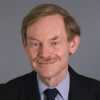Robert Zoellick

Robert Zoellick
Robert Bruce Zoellickis an American banker who was the eleventh president of the World Bank, a position he held from July 1, 2007 to June 30, 2012. He was previously a managing director of Goldman Sachs, United States Deputy Secretary of Stateand U.S. Trade Representative, from February 7, 2001 until February 22, 2005. Zoellick has been a senior fellow at his alma mater Harvard Kennedy School since retirement from the World Bank in July 1, 2012...
NationalityAmerican
ProfessionPolitician
Date of Birth25 July 1953
CityNaperville, IL
CountryUnited States of America
The United States has no closer alliance partner than Australia, ... Our special partnership is built on the solid foundation of common values and our shared commitment to a free, secure, and prosperous world.
We are going to have to give these people a chance to get back on their feet.
I will be emphasizing that the leaders who engage in corruption and their associates will have no place with the United States.
It is a very fluid situation ... the process of SLM coherence is proceeding.
The American steel industry faces a turning point. We believe the actions the president is taking today can restore the strength and profitability of this very important American industry.
We are too interconnected to try to hold China at arm's length, ... It is time to take our policy beyond opening doors to China's membership into the international system, we need to urge China to become a responsible stakeholder in that system.
We are too interconnected to try to hold China at arm's length, hoping to promote other powers in Asia at its expense.
It is clearly the case that programs in Europe and the United States that have increased biofuel production have contributed to the added demand for food.
Great upheavals produce shock waves that widen cracks in political, economic, and security orders. Sometimes the old orders break. Yet it can be in the power of leaders and peoples to shape the directions of change.
An empowered public is the foundation for a stronger society, more effective government, and a more successful state.
It is much harder for economies to prosper if they cannot sell to, buy from, invest with, and even transit their neighbors. Landlocked countries with failed or failing neighbors can lose access to the world economy.
Since I came to the World Bank in 2007, I have argued that we must 'modernize multilateralism.'
When I consider a problem, it is now instinctive for me to think about the institutions involved, the authorizing environment, possible coalitions, likely opposition, implementation, legal issues, resource dimensions, communications - and how the problem fits into a stream of other issues.
The Congress has had an uneasy relationship with banks and bankers since Alexander Hamilton. It took the United States until 1913 to set up a central bank. The Federal Reserve earned its hard-won independence over years of effort.